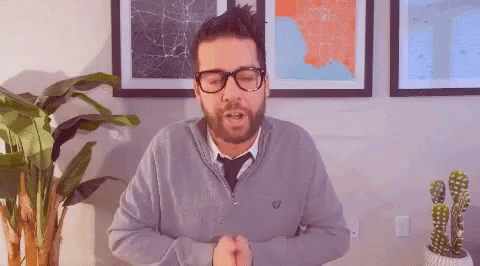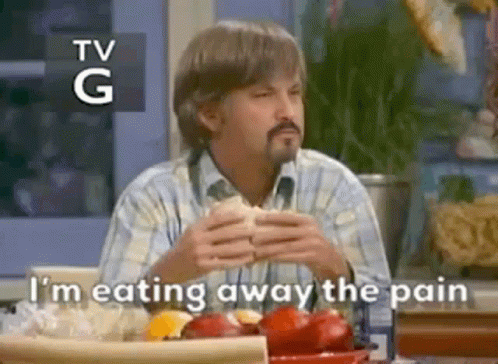Understanding Sunk Cost Fallacy (How Letting 'it' Go can Fix Your Diet)

Last month, I decided it was time to upgrade my workspace with a new office desk. But when I inquired about delivery, the sales guy dropped a bombshell: a 700-peso fee. My jaw dropped immediately - I just couldn't let myself pay for that.
Refusing to empty my wallet for delivery alone, I asked if I could skip the delivery and assemble it myself. I told him that I was a total newbie when it came to DIY projects – like, seriously clueless.
With a grin, the sales guy assured me that assembling the desk would be easy. His confidence rubbed off on me, and I thought, "How hard could it be?"
Feeling like a DIY champ, I brought the boxed desk home, ready to win the assembly challenge. But as I started putting it together, reality hit me in the face. The base refused to cooperate – no matter what I tried.
I convinced myself I could ignore the wonky base for now. Big mistake. Turns out, getting the base right was essential for attaching the top.
So, there I was, stuck in a DIY disaster of my own making. All because I didn't want to waste a little extra time. All because I thought I'd already put in the effort and couldn't afford to start over...
Sunk Cost Fallacy: Why is Starting Over So Tough?
If you can relate to my story, chances are you've had moments in your life where you felt hesitant about starting over after investing time in a project, a path, a career, a relationship, or even a dish that turned out bad.
We've all been there, haven't we? We've invested our time, effort, and maybe even money into something, only to realize it's not working out. The thought of letting go and starting over feels like a punch in the gut, even if we know it's for our own good.
We find ourselves sitting on the edge, asking ourselves: should I stay, or should I go? Should I keep pouring resources into this, hoping it'll magically improve? Why do we torture ourselves by clinging to something that's clearly not working anymore?

The answer is simple: fear. We're afraid that this job is the best we'll ever get, even if it makes us miserable for eight hours a day. We're afraid that this relationship is our one true soulmate, even if it's toxic and draining. We're afraid that this project just needs a little more time and money to turn things around, even if it's bleeding us dry.
But sometimes, the hardest thing to do is also the best thing for us: letting go.
Are you vulnerable to Sunk Cost Fallacy?
If you said an example to my previous question, chances are, you have been vulnerable to Sunk Cost Fallacy for once in your life. But don't be too hard on yourself, because you're not the only one.
Even top executives and business planners have found themselves caught in this trap. After all, when there's a lot of money at stake, walking away from a project can feel like an impossible feat, right?
In a study conducted by Harvard University, participants were asked to respond to a series of eight scenarios, deciding whether they would abandon a situation or not. The results revealed that most people scored low on vulnerability to the sunk cost fallacy study, but many still struggled with it in real-life scenarios.

Experiment Process
They rated each result on a scale from 0, indicating low vulnerability to SCF, to 5, indicating the highest likelihood to vulnerability to SCF Then, they tallied the scores out of 40. The results revealed that most people scored below 10.
Now, are these results reliable? Does scoring above 10 indicate a greater vulnerability to the sunk cost fallacy?
They took the experiment a step further by placing participants in real-life scenarios. One group had the opportunity to "earn" an asset, while the other group was simply "given" the asset.
The first group was then given the option to choose between keeping their current asset or exchanging it for a better one. Surprisingly, twenty-three percent of those in the first group chose to stick with their original, less valuable asset, demonstrating the SFC. In contrast, the majority of participants in the second group opted for the better asset when given the chance.
In simple terms, many individuals in the first group stayed to a less valuable asset because they had already invested their time and effort to acquire it. This highlights how easily people can be influenced by the sunk cost effect.
More results from the experiment
They discovered that having experience and knowledge, known as "crystallized intelligence," is more effective in avoiding the sunk cost effect than just having raw brainpower. In simple terms, being wise may matter more than being academically smart.
Even top decision-makers in big firms and governments can fall for the sunk cost fallacy, showing that experience alone isn't always enough to beat biases like this. Your own experience might have made you wise to some traps, but regardless of your seniority, evaluating your responses can help you gauge your vulnerability to SFC and make better decisions moving forward.
(Advice? Even if you think you know what to do, don't hesitate to seek help!)
How do you know it's Time to Go?
"Claire, you don't know how hard it is to find a job these days... How can I let go of this job that gives me so much security?"
"This guy has been good to me over the last 5 years. It's been tough lately, but I know it'll get better."
"With this project, we've put so much time into it over the last 3 years. This can't be the end of it."
I'm not here to judge if you're staying in something that's making you miserable; we all have our reasons for sticking around even when it's no longer good for us.
Deciding to abandon something we've invested time and effort into is never easy.
On top of the stress of leaving, there's the added pressure from others who think that ending things makes you a bad person. But let's be real, we all know that's far from the truth.
When it comes to making "the decision," I learned this lesson the hard way for many times and gained wisdom only after being on wrong path. If you truly want to ensure clarity, nothing beats asking for help. Relying on someone to oversee your decision, to weigh the pros and cons from their perspective, could be a smart move.
Because when we're in a thing, we don't see it very well...
But what if you don't have that support, or if you find it hard to let anybody know, there are safety nets we can consider before deciding to leave:
- Have you explored all your options?
- Job: Have you exhausted all efforts to ask your boss for adjustments? Whether it's a raise, relocation allowance, or more time off?
- Relationship: Have you talked about the problems? What was the result? Is it the same issue over and over again?
- Investment: Is it costing you more money than you're earning? How long has this been going on? If you've answered yes to all of these, then that's a good reason to go.
- Have you checked your non-negotiables? Were your boundaries crossed?
My first romantic relationship and job taught me a valuable lesson: never enter something without considering what it will take for you to leave. For relationships, it's respect; for jobs, it's my mental health. - When it affects your mental health.
Which brings us to the next point.
Chronic Stress: The Price of Hanging Around When You Should Move On
Okay, now that we've learned what sunk cost is and if you are vulnerable to it or not. Let's understand what happens if you do fall into this trap. You guessed it - stress.
From Harvard Health, sticking with something that's harming your health out of fear is a risky move that can lead to chronic stress.
And let's not downplay the effects of chronic stress on your body. To put it simply, when your body senses danger, it kicks into high gear (cue the adrenaline, cortisol, and other stress hormones). This means your body demands more oxygen to cope with the stress.
So, where does your body get this extra energy from? You guessed it – food.
But here's the thing: when we're stressed, we don't exactly reach for the salad or the apple. Nope, it's all about the comfort food – think ice cream, pizza, burgers – basically anything processed or loaded with sugar.

According to Dr. Elissa Epel, Professor and Vice Chair of the Department of Psychiatry & Behavioral Sciences at the University of California, San Francisco, in her webinar called: Food and the Aging Brain: Updates on Nutrition and Cognitive Health in Older Adults, she talks about a study on rodents put on highly stressed situations (e.g. predators and odor), showed that these rodents had an increased visceral fat due to bad diet of junk food, but the animals were also stressed.
Similar examples appear in real life scenarios as well. In a study done to maternal caregivers, the more stressed they are, the more likely they exhibit compulsive eating and increased abdominal fat over the years.
On the flip side, some folks deal with stress by skipping meals altogether or opting for quick, processed foods. It's all about convenience when motivation is low, and time is tight.
In a study published in The American Journal of Clinical Nutrition titled “Occupational Burnout, Eating Behavior, and Weight among Working Women,” researchers discovered that women grappling with occupational burnout due to chronic workplace stress may be particularly susceptible to emotional eating and uncontrolled food consumption.
And let's not forget about sleep – or lack. Stress can wreak havoc on your sleep, leaving you tossing and turning at night. And how do we power through the grogginess the next day? More caffeine and sugary drinks.
Better Mood and Better Food Choices
I think we can all agree that making healthy dietary choices can be challenging, even when we're not stressed. The temptation of fast food, our favorite snacks in the pantry, and the convenience of nearby eateries like Chick-fil-A can make it even more difficult. Now, imagine adding stress to the mix. It becomes even harder, doesn't it?
Studies show that a good mood not only helps us make better food choices, but that good food also positively affects our mood. According to Chocano-Benoya, a senior epidemiologist from the University of Zurich, a 2014 study in "Brain, Behavior, and Immunity" found a link between depression and diets rich in sugar-sweetened soft drinks, refined grains, and red meat.
They also suggested that focusing on a diet high in antioxidants from fruits and vegetables, like the Mediterranean diet, can help lower depression.
To Moving Forward
This article's purpose is to focus on moving forward. It's not here to present another option, so I'm not offering that in the conclusion.
So, if you’re here, reading this part of the article, you're almost or certain that you want to move forward. First, I want you to take a deep breath... then continue reading the next paragraphs.
In the end, I want you to know that it's very brave of you to recognize that it might be time to let go. You've realized that embracing acceptance and freeing yourself from the grip of the sunk cost fallacy can open the door to new opportunities and personal growth.
Remember, it's okay to acknowledge that something no longer serves us and to prioritize our well-being. I hope you stop beating yourself up for putting yourself first this time.
You're doing this because you only have one life to live. By living authentically and honoring your own journey, you reclaim the power to shape your future.
Here's to embracing the freedom that comes from letting go and living your most authentic, healthier self!
Hey there,
If you've finished this article up until here, you're awesome!
What do you think about this? I'd love to hear from you.
If you enjoyed this article, I'd really appreciate it if you could share it on your socials. I'm on a mission to reach as many readers as possible and spread the word about my work on nutrition and copywriting.
But hey, if this isn't your thing, no worries at all!
Here's another option, I'm actually building copyclaire's community of awesome beginner or experienced copywriters and health enthusiasts, so... if you're open to it join us on Instagram!
Many thanks for your support and happy reading!
Xoxo,
Claire 😄

